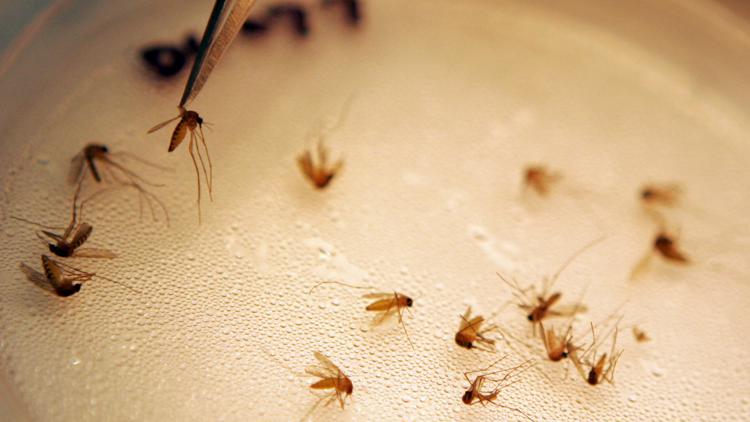Updated at 4:45 p.m. with an additional case
Denton County health officials have reported the county's second and third human cases of the West Nile virus this year. The first case was confirmed on Monday.
Both Denton residents were diagnosed with the West Nile Neuroinvasive Disease.
Denton County Public Health's Chief Epidemiologist Juan Rodriguez is asking community members to "remain vigilant in mosquito source reduction and the utilization of repellants."
Dallas County health officials announced the year's first human case of West Nile virus on Aug. 6.
The city of Denton also entered into Risk Level 5 Thursday, indicating that the probability of a person contracting a mosquito-borne disease like West Nile Virus is high.
City leaders made this decision after multiple human cases of West Nile were confirmed in Denton.
At Risk Level 5, the city will continue to conduct routine surveys of adult mosquitoes, which will be identified to species level and screened for the presence of viruses.
After entering what city officials are calling, "Risk Level 5," they will be using more chemicals and products to kill mosquito larva.
The application of highly targeted ground-based insecticides for killing adult mosquitoes will be considered by Denton City Council and possibly implemented. The insecticides used will likely contain pyrethrins or similar low-impact insecticide.
If insecticide use is approved by, citizens should avoid contact with these insecticides when they are applied.
The City of Denton Water Utilities Department has bacillus thuringiensis israelensis briquettes that residents can pick up in limited quantities (two per resident) while the supply lasts. Residents will be required to show their driver’s license or a current City of Denton utility bill to prove Denton residency.
DCPH advises residents to take the following steps to minimize risk of contracting WNV:
- Drain standing water in your yard and neighborhood to minimize mosquito breeding sites such as bird baths, flowerpots, and clogged rain gutters. Consider the use of BTI briquettes, often called mosquito dunks, in standing water that cannot be eliminated.
- Dress in long sleeves and pants when you are outside and spray thin clothing with repellent.
- Defend yourself by using EPA approved repellent. Check for ingredients like DEET, Picaridin, or Oil of Lemon Eucalyptus.



